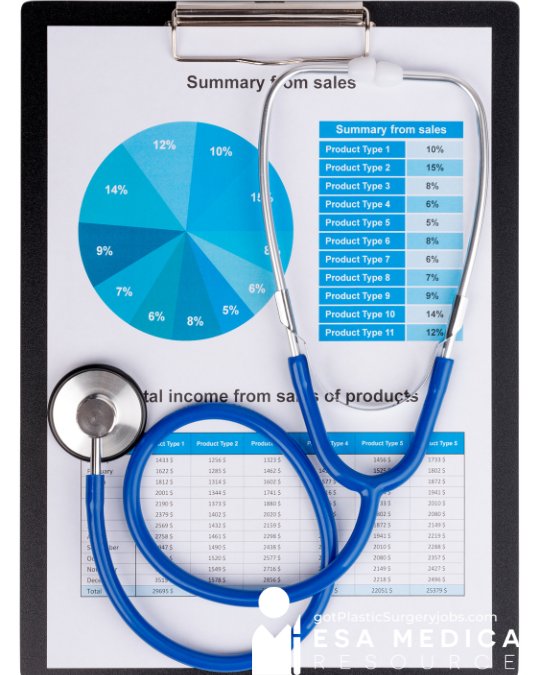
Having a successful phone interview is imperative to moving forward in the interview process. A good phone interview can lead to a site visit, and hopefully a job offer. Following the steps below will best prepare you to ace the phone interview!
Preparation
Research the opportunity and the practice so you are prepared to discuss the practice and your role if you were to be hired. Compile a list of answers to typical phone interview questions. In addition, have a list of questions ready to ask the interviewer(s).
Confirm the Interview
Before the call, confirm all the details including the date, time and who you will be talking to. Be sure you know whether the interviewer is calling you or if you need to make the call.
Choose an Interview Space
Use a quiet, comfortable, and private space. If you’re at home, kick out kids, spouses, significant others, parents, pets and anyone else who is in the house and close the door.
Have your CV in clear view taped to the wall or on your desk. Also, have a short list of your qualifications and skills specific to the job you’re interviewing for close at hand. A “cheat sheet” will help you respond to related questions without fumbling for words.
Have a pad and pen ready to jot down notes. Turn call waiting off on your phone and be sure to use a landline, not a cell phone, whenever possible. You don’t want to have to worry about dropped calls.
Use Proper Phone Interview Etiquette
Answer the phone yourself, let family members and/or roommates know you are expecting a call. When you answer the phone, answer with your name i.e. Jane Doe (in a perky tone of voice) so the interviewer knows they have reached the right person.
Use the interviewer’s title during the conversation (Mr. or Ms. and their last name.). Only use a first name if they ask you to. Otherwise, use the formal title.
Listen to the interviewer and don’t interrupt. If you have something you want to say, jot it down on your note pad and mention it when it’s your turn to talk.
If you need a few seconds to gather your thoughts, don’t worry, but don’t leave too much dead air. If you need the interviewer to repeat the question, ask.
Polish Up Your Telephone Communication Skills
During the phone interview, you’ll need to sound as professional as you would if you were meeting the interviewer face to face:
- Don’t chew gum or eat while you’re on the phone.
- Have a glass of water close by, in case you need a sip or two during the conversation.
- Standing up is an option to consider. Sometimes you can focus better when you’re standing.
- Be sure to smile. Smiling will project a positive image to the listener and will change the tone of your voice.
- Speak slowly and enunciate clearly.
- Don’t ramble on so the interviewer can’t interject or ask more questions
Send a Thank You Note
At the end of the interview, thank the interviewer and ask what the next step in the process will be. Ask for the interviewer’s email address and send out an email thank you note immediately, thanking the interviewer and reiterating your interest in the job. It’s important to show your appreciation for the interview regardless of how the interview was conducted.
Typical Phone Interview Questions
Phone interviews are conducted just like in-person interviews. They are used by hiring managers and recruiters as a tool for screening candidates for employment.
It’s important to take time to review the typical phone interview questions you’ll be asked and to prepare answers. In addition, plan on being prepared for a phone conversation about your background and skills.
Phone Interview Questions about Your Background
- Name
- Dates of employment.
- What were your starting and final levels of compensation?
- What were your responsibilities?
- What major challenges and problems did you face? How did you handle them?
- Why are you leaving your job?
- What are your salary expectations?
Phone Interview Questions about the New Job and the Practice
- What interests you about this job?
- Why do you want this job?
- What applicable attributes / experience do you have?
- Are you overqualified for this job?
- What can you do for this company?
- What do you know about this company?
- Why do you want to work here?
- What challenges are you looking for in a position?
- What can you contribute to this company?
- Are you willing to travel?
- Is there anything I haven’t told you about the job or company that you would like to know?
Phone Interview Questions about You
- What are you looking for in your next job? What is important to you?
- What is your greatest weakness?
- What is your greatest strength?
- Describe a typical work week.
- How would you describe the pace at which you work?
- How do you handle stress and pressure?
- What motivates you?
- Tell me about yourself.
- Questions about your career goals.
- What type of work environment do you prefer?
Phone Interview Questions to Ask the Interviewer
- How would you describe the responsibilities of the position?
- What qualities are you looking for in the person you hire to join the practice?
- If I was hired, how would I be interacting with you and your department, what would be your expectations, and your measures for success?
- How would I get feedback about how well my work meets the expectations?
- What do you view as the most challenging part of this job?
- Why is the last person who held this position leaving?
- Who does this position report to?
- How would you describe the company culture?
- What is the typical work week? Is overtime expected? How about travel?
- What are the opportunities for advancement with the company?
- Is there anything else can I tell you about my qualifications?
- Could I schedule an in-person interview at your convenience?
- If I am extended a job offer, how soon could I start?
- Would you like a list of references?
- When can I expect to hear from you?
- Are there any other questions I can answer for you?
Telephone interviews can a traditional voice call, or video call. We are seeing more practices use video calls than voice calls. So in addition to speaking professionally, you need to dress professionally. For video calls you also need to have a professional background. We will be discussing preparing for video call in more details in our next article.
ESA Medical Resources (gotplasticsurgeryjobs.com) specializes in the recruitment of plastic surgery professionals. Our service is free to candidates seeking plastic surgery practice opportunities. Our service is risk free to clients seeking our recruitment service. Please email david@gotplastisurgeryjobs.com or text/call 270-266-1023.


